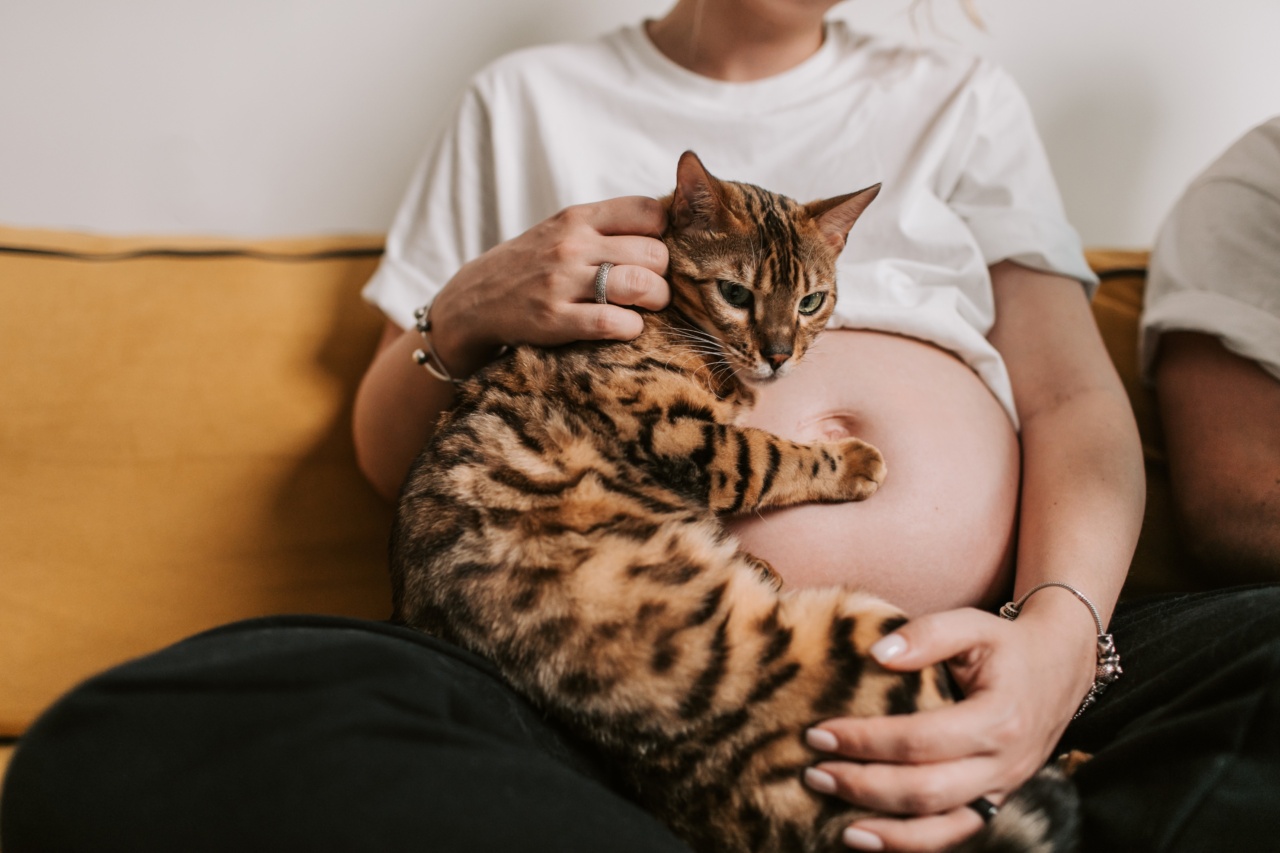Pets are often referred to as man’s best friends. Research into the bonding between animals and humans suggests that pets can positively impact a person’s health and wellbeing.
For many couples, welcoming a pet into the family is the first step towards starting a family. However, pregnancy brings with it a variety of risks for both the mother and the unborn child. It is, therefore, important to understand the potential risks of having pets during pregnancy.
Understanding Toxoplasmosis
Toxoplasmosis is a parasitic infection that can cause flu-like symptoms in humans, but it is especially dangerous during pregnancy. Ingesting the parasite can lead to severe birth defects or miscarriage.
The infection is often acquired from contact with the feces of infected cats, but other sources of infection include contaminated soil, food, water, or meat.
To reduce the risk of contracting toxoplasmosis, pregnant women should avoid changing cat litter boxes or handling soil without gloves.
Furthermore, pregnant women should avoid eating raw or undercooked meat, and they should also avoid consuming unpasteurized dairy products as they could contain the parasite.
What about other pets?
Toxoplasmosis is not limited to cats; other animals can also carry and transmit the parasite. For example, goats, sheep, and cows can carry it and transmit infection via their meat or milk.
Therefore, pregnant women should also avoid unpasteurized goat or sheep milk and undercooked meats from these animals.
While dogs are not at risk of becoming infected with toxoplasmosis, they can carry other types of parasites that can transmit diseases to humans.
Therefore, it is recommended that pregnant women avoid close contact with dogs and other pets, especially when they are unwell.
Stay Away from Reptiles and Birds
Reptiles and birds are also a significant source of infection, as they can carry dangerous bacteria such as salmonella and E. coli. The Center for Disease Control (CDC) advises pregnant women to avoid handling reptiles or birds altogether.
If, for example, the pregnant woman must handle reptiles, she should wash her hands thoroughly afterward to reduce the risk of infection.
Reducing Pet-to-Human Transmission of Infections
Even when pets show no signs of illness, they can still transmit infections that can affect the health of pregnant women. To reduce the risks of pet-to-human transmission of infections, pregnant women should take the following steps:.
- Practice good hygiene – Wash hands regularly with soap and water, especially after pet contact or handling pet food or feces.
- Avoid pet bites – Dogs and cats may become more aggressive during pregnancy, and bites could risk infection or introduce harmful bacteria.
- Get your pet checked regularly – Make frequent trips to the veterinarian to ensure that your pet stays healthy, clean, and free from parasites.
Conclusion
While the risks posed by pets during pregnancy should not be a cause for panic, it is essential to understand and mitigate them.
By practicing good hygiene, avoiding certain pets and foods, and getting regular check-ups for your pet, you can help reduce the risk of transmission and ensure that your pet is safe and healthy.































